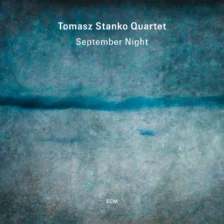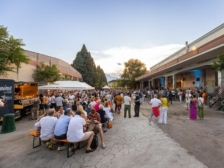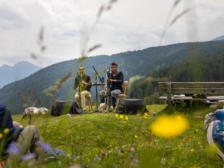Europe Jazz Media Chart – Juli 2024
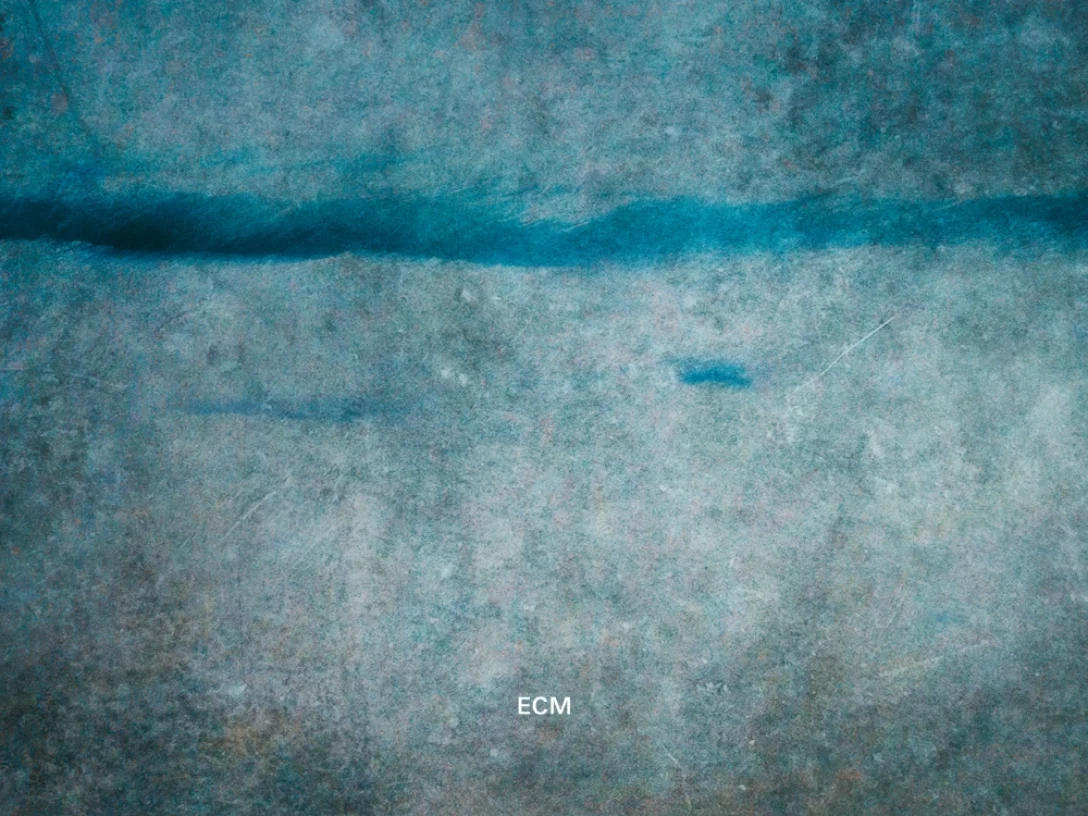
Ook deze maand publiceren wij weer de Europe Jazz Media Chart, een lijst van de belangrijkste jazzalbums van dit moment volgens toonaangevende Europese journalisten binnen de jazz. Journalisten die voor Europese magazines, zowel print als online, hun artikelen en recensies schrijven.
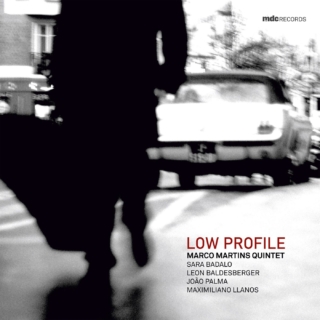
Low Profile – Marco Martins Quintet (MdC Records)
Nuno Catarino, Jazz.pt (Portugal):
The bassist Marco Martins debuted his discography in 2016 with “Roadbook,” recorded in Paris. This new album, “Low Profile,” marks a change: starting with the instrumentation, which features accordion, trumpet, and vocals at the forefront. The music gains new colors and follows different directions. Martins’ compositions evoke various atmospheres and, crafted by this combination of musical personalities, result in an original sound. The sound is balanced, and even the pronounced accent of the accordion does not steal too much of the spotlight, creating a collective sonic balance. In this second work, Martins presents music with a more distinctive personality. Read more (in Portuguese)…
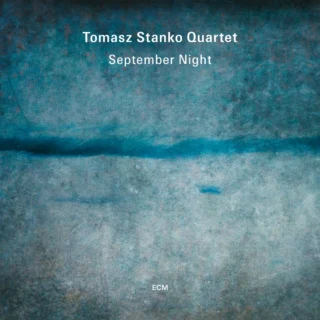
September Night – Tomasz Stańko Quartet (ECM)
Dick Hovenga, Written in Music (Netherlands):
Anyone who saw trumpeter Tomasz Stańko playing just before and after the turn of the century with his young trio featuring Marcin Wasilewski on piano, Slawomir Kurkiewicz on double bass and Michael Miskiewicz on drums knew that Stańko was at the peak of his playing. The free spirit surrounded by young fascinatingly good musicians. Altough he got the musicians as his band in 1993 it wasn’t until 2002 that he released his first album with his still very young Polish trio, Soul of Things. And it turned out to be a classic right away. An overwhelming combination of ambition, musical genius and a selection of heavenly jazz compositions resulted in a fascinating jazz document. Successor Suspended Night proved to go even further. It was in September 2004, two months after the release of Suspended Night, that the quartet played at the distinguished Muffathalla in Munich. The recordings from that miraculously remained on the shelf for twenty years. September Night showcases a quartet of musicians playing at the top of their game. The concert marked a period when the quartet seemed to be full on tour with an endless number of gigs in both Europe and America. The Munich performance showcases a quartet as good as you hear very few. September Night is everything you want to hear in jazz. Breathtakingly good recordings of a quartet in blood form who utilize the rock-solid compositions to the finest detail to get everything out of their own playing and each other’s. It’s a masterful recording of a legendary quartet that, with Stańko’s powerful and deeply emotional playing at the start of the majestic Celina, hits almost harder than you can have. What an incredible album this is. Absolute highlight in ECM’s catalog. Read more (in Dutch)…
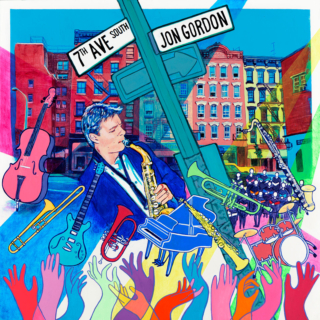
7th Ave South – Jon Gordon (artistShare)
Cim Meyer, Jazz Special (Denmark):
Over the past 25 years or so, there has been an ever-increasing number of excellent recordings from Canada. On the one hand, the historically cosmopolitan and close contact with both the United States and Europe is evident, and on the other hand, the Canadian cultural and educational policy is obviously conducive to modern jazz music.
40 years ago, the then 16-year-old Jon Gordon soaked up his hometown of New York. It was precisely on 7th Avenue South in Greenwich Village that a string of cool venues was located, of which only the Village Vanguard remains today. Today, Gordon holds a position as professor at the Jazz Department at the University of Manitoba, Winnipeg, Canada. And it is mainly current and former students from here who participate at 7TH AVE SOUTH – and the level is sky high!
Gordon is the main soloist with pure intonation on the soprano sax and a large register on the alto sax. However, it is especially as an arranger that he makes a name for himself in a dramatic tonal language with both melodic and harmonic qualities. Despite modern complex arrangements, the music is accommodating, soft and elegant, and this is partly due to the vocal elements. There is both choir and lyrics, and the music floats especially ethereal when the demanding themes are presented with winds in unison with wordless vocals.
Joe Gordon has the skills to unfold the arrangements for large orchestras added with vocal soloists, choirs or strings… On “7th Ave South” nine instrumentalists and ten vocalists participate.
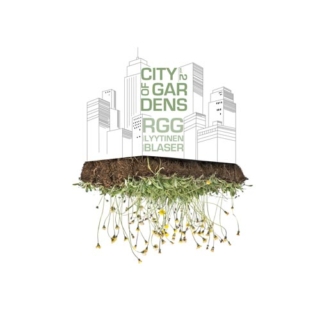
City of Gardens vol.2 – RGG / Pauli Lyytinen / Samuel Blaser (Voicemusic)
Krzysztof Komorek, Donos kulturalny (Poland):
Six years after the release of their album ‘City of Gardens’, the trio RGG are back with a new instalment of the project. Seven pieces adding up to fifty minutes of excellent, fascinating music. RGG, Lyytinen and Blaser are able to find and lead the listener along unexpected paths. It is a celebration of the individuality of the each of the artist, as well as the unusual fusion of all five into one perfect organism. The subtlety of sounds dosed with thought, the collegiate intensity, the storm of free improvisation. Read more (in Polish)…
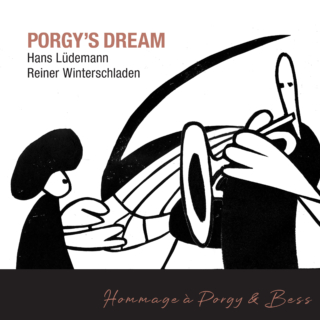
Porgy’s Dream – Hans Lüdemann & Reiner Winterschladen (Double Moon Records)
Jacek Brun, Jazz-fun.de (Germany):
Hans Lüdemann and Reiner Winterschladen have presented us with a very interesting album whose musical material is very original despite its outward appearance. The familiar themes are only the starting point for improvisation and a life of their own. It is an album that takes us into a completely different, seemingly familiar world, which is rediscovered with every new sound. Read more (in German)…
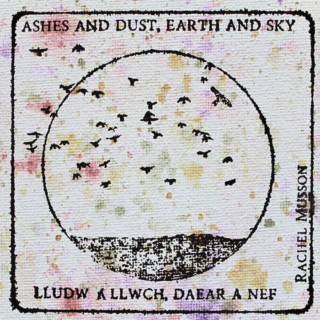
Ashes and Dust, Earth and Sky / Lludw a llwch, daear a nef – Rachel Musson (Self-released)
Tony Dudley-Evans, LondonJazz News (UK):
“I am an improviser and composer and play the saxophone. I am based in the UK. During the pandemic I yearned for open skies and air and sea, and I spent some time exploring my ancestry, learning that generations of my family lived and worked the land in West Wales, before moving east to the coalfields of South Wales.” Rachel Musson is known for her I Went This Way project for a nonet, and the Shifa trio with Pat Thomas and Mark Sanders (three albums on 577 Records). Ashes and Dust is, by contrast, a solo project in which she brings together composition and improvisation using field recordings mostly collected in West Wales, but with a few additions from London, into which she integrates instrumental passages on saxophones, flute and piccolo. So we have the sounds of birdsong, water flowing, church bells and also the London underground which are gradually manipulated digitally to create a variety of textures against which Rachel improvises on her various instruments. The sound of the instruments are also manipulated at certain points to create a range of engaging sounds. Read more…
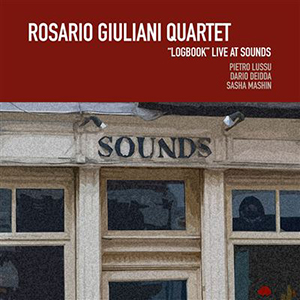
Logbook, Live at Sounds – Rosario Giuliani Quartet (Hypnote Records)
Yves Tassin, JazzMania (Belgium):
At a time when ‘Sounds’ is going through difficult times, it is to be hoped that the record simulates the new dynamic that all the friendly, willing volunteers were hoping to see installed in the historic club. (Jean-Pierre Goffin) Read more (in French)…
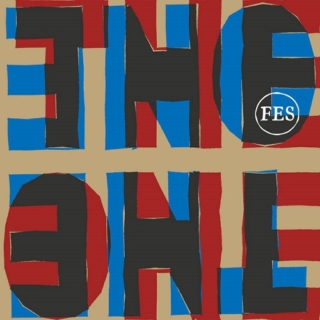
The One – FES (Zonk!)
Jos Demol, Jazz’Halo (Belgium):
FES is synonymous with unreliable music production with a burning topical mission and a role that is still not played out” states the recent bio. And indeed, after twenty-five years, artistic director and reed player Peter Vermeersch, together with pianist/keyboardist Peter Vandenberghe and their disciples, unabatedly guarantee the most unusual choreographed sequences, both on CD and live. (Georges Tonla Briquet) Read more (in Dutch)…
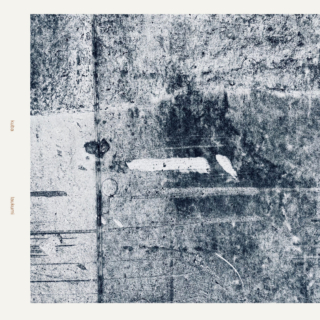
laukumi – kuba (Jersika Records)
Kaspars Zavileiskis, Jazzin.lv (Latvia):
Latvian post-rock/jazz band kuba is a supergroup of several well-known rock and jazz musicians, whose debut album 15 episodes of kuba became an exclusive event in 2002. The second album was created for… 22 years, fueling even greater interest among Latvian music lovers. With the summer solstice, it has finally arrived, released on a tastefully designed vinyl record and offers a logical musical progression. kuba has remained faithful to the post-rock/jazz mix, but laukumi is a more conceptual and also experimental work, the compositions of which flow smoothly into one another. The A-side of the album belongs more to the post-rock style, while the B-side goes more towards jazz, but it is not necessary to draw specific boundaries here. It is better to indulge in the thoughtful, unhurried soundscapes that also touches ambient and krautrock styles.
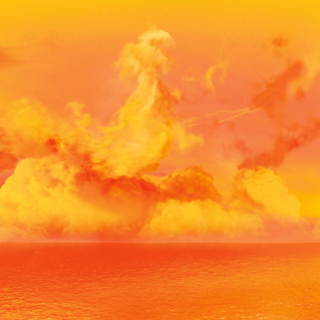
Chants – TAU (Fun in the church)
Matthieu Jouan, Citizenjazz.com (France):
The band formed around Berlin saxophonist Philipp Gropper has now completed its transformation and is now a collective force, TAU, with a new album that is more stretched out, slower, and more buoyant. The change of bassist (Felix Henkelhausen replaces Petter Eldh) makes the sound less percussive and more bonded. The compositions are often collective, and are largely the work of saxophonist and keyboardist Philip Zoubek, whose work never ceases to surprise and delight. TAU stands above the fray, with a sound and ambience that hover like clouds over a plain.
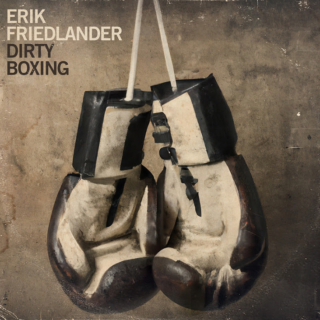
Erik Friedlander – Dirty Boxing (Skipstone Records)
Jan Granlie, Salt-peanuts* (Pan-Scandinavian):
American cellist Erik Friedlander lives in New York City. He is a veteran of New York’s experimental improv scene, he has worked in many contexts, but is perhaps best known for his frequent collaborations with saxophonist John Zorn.
On his new record, he compares musing and the unexpected parallels in the art of improvisation with the strong vocabulary of Mixed Martial Arts (MMA). On Bandcamp it is said that “they explore the unexpected parallels between the disciplined artistry of music and the strategic combat of martial arts, where Friedlander and his bandmates deliver powerful performances that interweave intensity, grace and a touch of martial spirit. The resulting sonic odyssey is sure to leave listeners stunned and maybe even a little knocked out”. He is bringing the band The Throw, with pianist Uri Caine, bassist Mark Helias and drummer Ches Smith. In addition, they do the suite “Floating City”, with Portuguese vocalist Sara Serpa, guitarist Wendy Eisenberg, Helias and Friedlander.
This has become a fantastic record in two clearly separated parts (the suite “Floating City” is only included on the CD edition). You can certainly be knocked out both as an audience member and as a participant in an MMA match, but here you are knocked to the ground purely musically by both the brilliant playing in the first part, and by the suite, because of the beautiful parts and the wonderful musicians, especially because of Sara Serpa’s delicious vocals, the fine and original guitar playing and the Bach-like sequences.
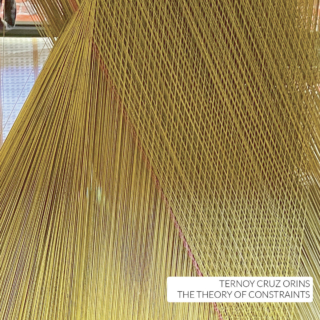
The Theory of Constraints – Jérémie Ternoy / Ivann Cruz / Peter Orins (Circum-Disc)
Mateusz Sroczyński, Meloport (Ukraine):
What we have here is a lenghthy (over 69 minutes) record made by acoustic incarnation of long-lasting French improvising trio Toc. This is the third such venture of pianist Jérémie Ternoy, drummer Peter Orins and guitarist Ivann Cruz after Qeqertarsuatsiaat (2015) and Ouvre-Glace (2021, issued under the name Adoct, recorded with Sakina Abdou and Barbara Dang). It seems that now the band’s name stands for the management paradigm called Theory of Constraints and not for the members’ surnames. But we’re here for the music, so go google the definition in another tab, if you want. Well, if you like jazz, you have to be warned that this music is rather based on non-electrical post-rock logic with much subtle trance, ascetic meditation and sonoristic explorations of acoustic instruments with a little addition of free-jazz attitude (especially on the most agressive moments of the second part of the title track). If you’ve listened to Toc before, you should be prepared for them playing with chords, shiny chamber melodies and beautiful, cryptic harmonies. Behind all this is the distinctive, incredibly focused rhythm created by the mastermind Orins, who plays kinda foggy (The Thinking Processes) and often balances on the edge of audibility (Throughput Accounting). The band seems very steady while deep diving into slow repetitions in The Theory of Constraints – Part I and reaching a chaotic turmoil in the last piece. The persistent and psychotic bass-line in this one feels almost bluesy, but it’s also degenerated by using preparations that made it difficult at certain moments to differentiate the guitar from the piano. Everything here is dense, yet it floats gently and seems telling about some sort of charming mistery. Highly recommended, like almost everything that these guys did.
Voor de volledige lijst en meer links: Europe Jazz Media Chart – Juli 2024
